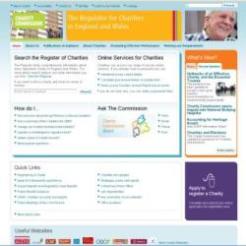Seventy per cent of telephone calls to the Charity Commission are made by trustees, and around half of these fall into five subject areas.
The Charity Commission collected a sample of calls to establish who was making calls and why, with a view to seeing if the answers could be presented better on the Commission’s website.
It found that 70 per cent of calls were from trustees and 15 per cent were from the general public. It also established that while there were 32 main categories and 300 common questions, five general subject areas accounted for half of all calls, and that within these there were a few very popular queries.
The five areas were:
1. Annual return (13 per cent of calls)
Typical queries: Have you received it? How long have we got to submit it?
2. Online services (11 per cent of calls)
How do I get a password? How do I create or attach a PDF?
3. Registration (10 per cent of calls)
We don’t have £5,000 – can we still register? What are the charges? How long does it take?
4. Accounts (9 per cent)
Who can carry out an independent examination/audit? What is the difference between the annual return and the annual report?
5. Register updates (7 per cent)
How do I update our contact details?
We have entered the wrong income or expenditure, how can we correct it?
The Commission also asked the sample callers whether they had been to the website before calling. Some 43 per cent had not used it; 19 per cent had been there but couldn’t find what they needed; 25 per cent didn’t understand the content, and 13 per cent had used the site but still needed personal assistance.
The Commission’s acting head of Charity Commission Direct, Neville Brownlee, said the regulator wanted to improve its web offering in order to reduce these commonplace calls and free up operators for the queries that really do require a one-to-one conversation with a Commission staff member.
“We’ve been promoting our phonelines for so long now we need to find ways of promoting our website,” he said.
He also said the regulator should identify groups of charities that were making the same requests for help, and try to tailor assistance to them, possibly in partnership with relevant umbrella bodies.










